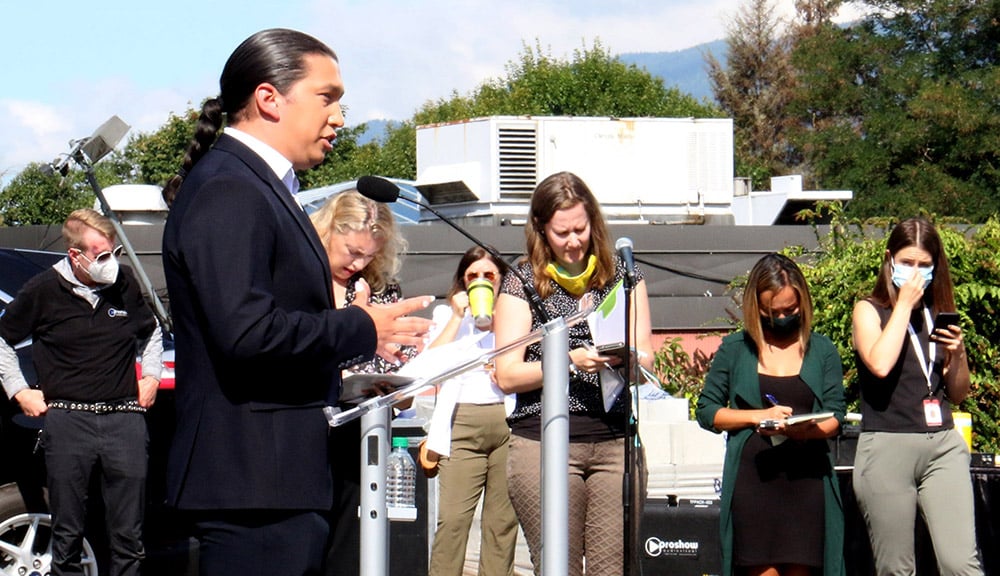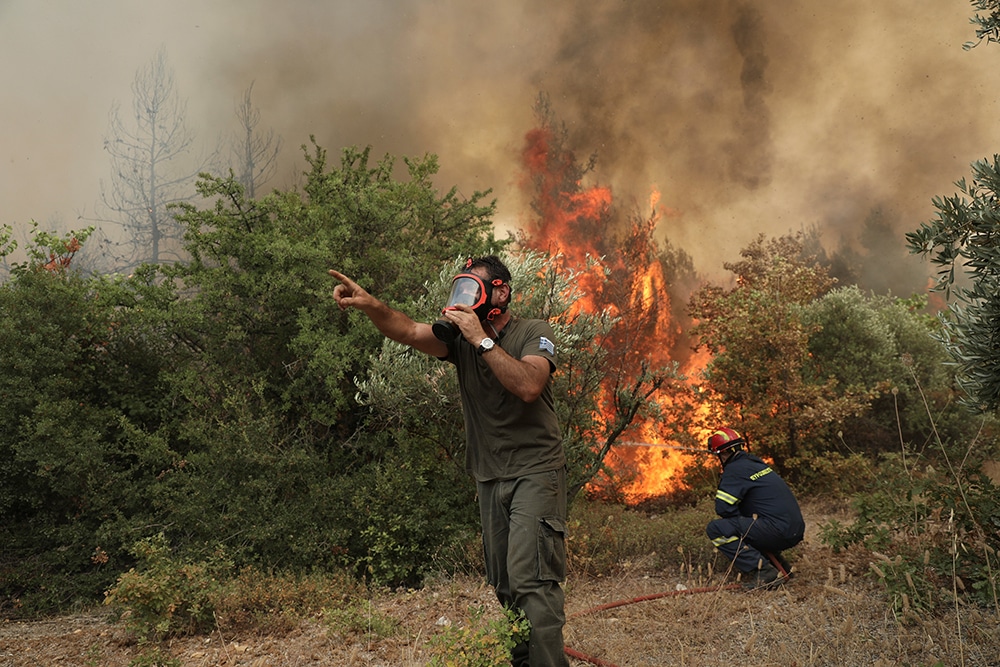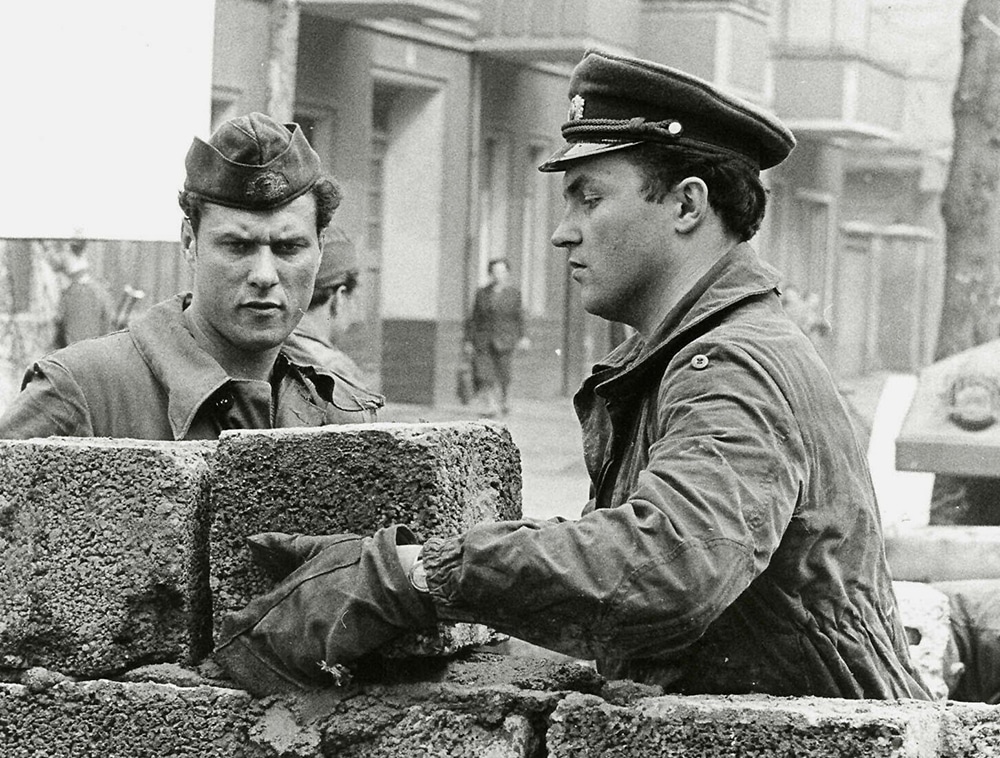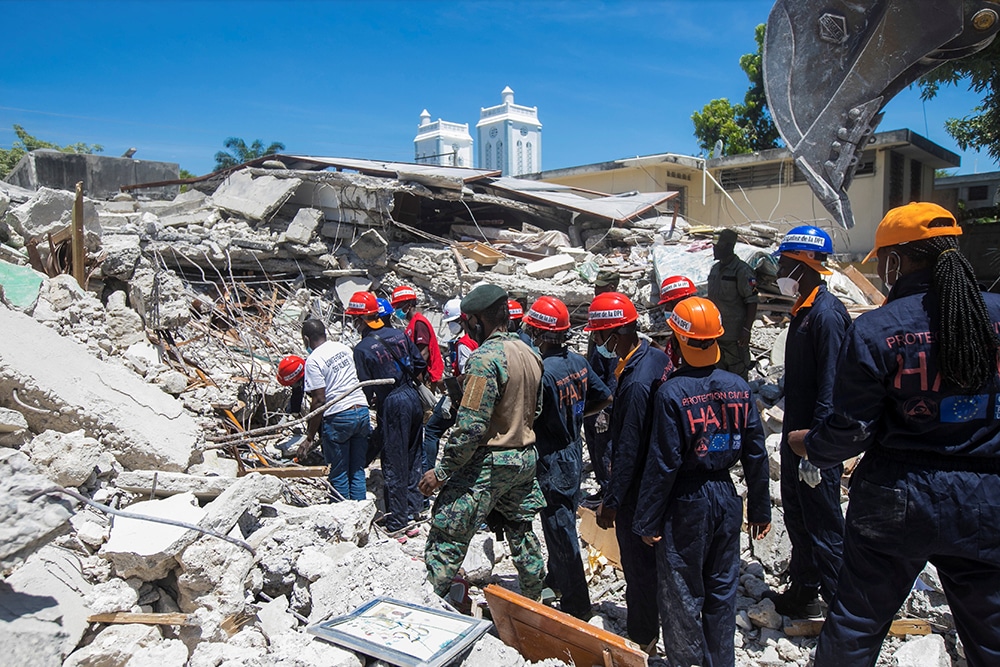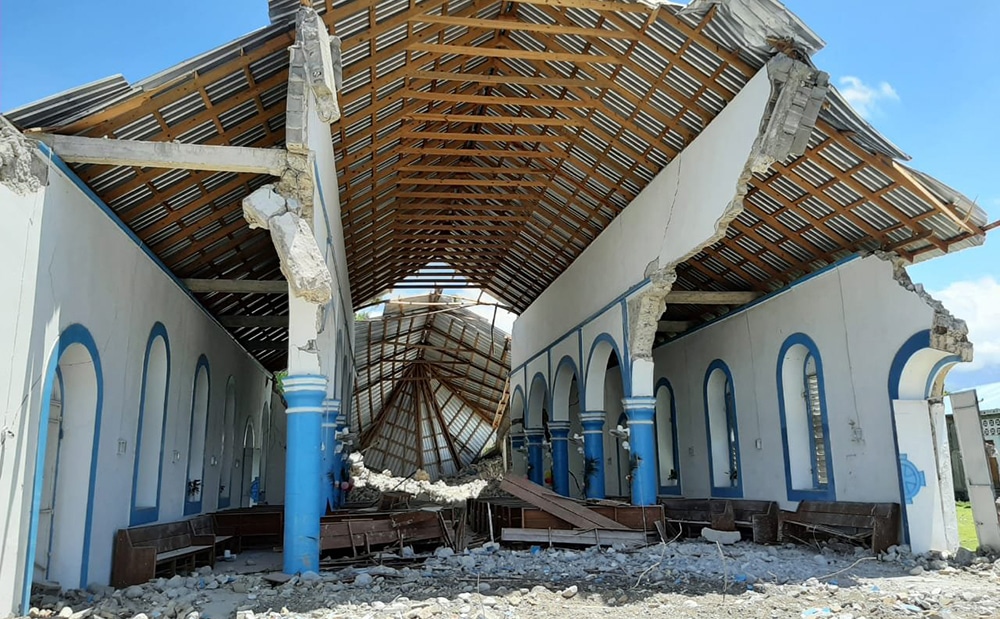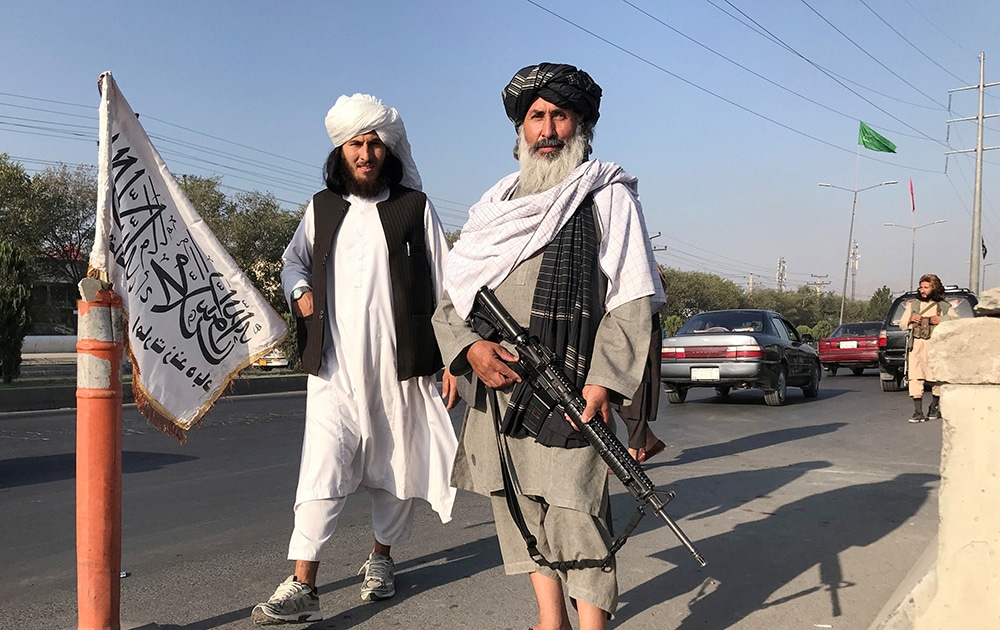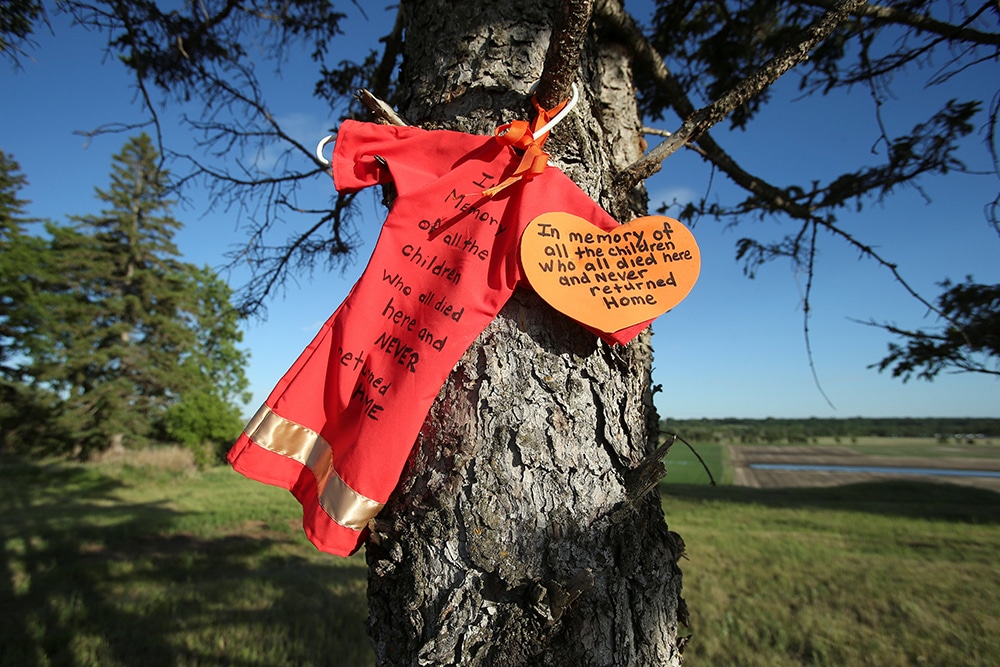NORTH VANCOUVER, British Columbia (CNS) — Three First Nations are working with the Archdiocese of Vancouver to look for remains of at least 12 students who attended the former St. Paul’s Indian Residential School.
The investigation is complicated because it is roughly where the parking lot sits at St. Thomas Aquinas Regional Secondary School in North Vancouver.
“Our intention here today is to begin a healing process for our survivors and for our people, for the survivors who attended St. Paul’s Indian Residential School, but also the intergenerational survivors who live with and have felt the effects of the residential school system,” said Squamish Nation spokesman Khelsilem, also known as Dustin Rivers.
He announced Aug. 10 that the inquiry would begin in mid-August and would involve hearing personal accounts from survivors, collecting archival material about St. Paul’s, and a field search that could involve ground-penetrating radar or other technology.
“We know based off of the current archival information that we have that there are a number of children that attended the school that did not make it home,” he said, “but most of the information is piecemeal.”
A news release from the Squamish Nation said public records show 12 unidentified students died while at St. Paul’s between 1904 and 1913, but the location of their remains is unknown. Rivers said his hope is the investigation will bring to light truths about the residential school, which operated from 1899 to 1959, and the students who attended it.
“We chose not to come out quickly as the other discoveries were coming to light,” Rivers said. “We wanted to take our time and care and wait for the right moment until we had everything in place.”
Having everything in place included making the healing of residential school survivors the top priority in any work going forward.
Rivers also made it clear that the Squamish, Tsleil-Waututh, and Musqueam First Nations are working in collaboration with local Catholics and other community members.
James Borkowski, the archbishop’s delegate for operations, said the Archdiocese of Vancouver is “honored with the opportunity to work shoulder to shoulder toward restoring knowledge, culture and trust.”
Borkowski reiterated Vancouver Archbishop J. Michael Miller’s apology to survivors and his pledge earlier this year to help Indigenous people in healing, access to documents, and providing scientific and professional support in ways most meaningful to them.
Earlier this year, within one month, the bodies of more than 950 people were recovered at the sites of two former residential schools, prompting an outcry and additional investigations. The Canadian government policy was to send Indigenous children to residential schools as part of a mistaken effort at assimilation. Catholic religious orders ran most of those schools, and stories of abuse are rampant.
Preliminary work has already begun at the former St. Paul’s. Some landscaping and construction due to damage done by tree roots has been underway on the property in collaboration between the Squamish First Nation, the archdiocese, and St. Thomas Aquinas School.
Kevin Rivers, father of Dustin Rivers, is part of that preliminary work. He told The B.C. Catholic, newspaper of the Archdiocese of Vancouver, that participating in this effort is particularly meaningful to him because his late mother attended St. Paul’s.
“It’s very powerful to see everybody come together,” he said. His mother, who attended the school for about six years, “always did her best to move on from it and just live life to its best. But her stories would come up once in a while … because they were trying to take it away from her, language and culture; she stuck to it and held to it and continued it for generations.”
Other Indigenous people at the news conference described the investigation as a good first step and a recognition of the pain some of their parents or grandparents had experienced.
“I represent my father and mother, who went to residential schools,” said Rennie Nahanee, a Squamish man and Catholic deacon serving at nearby St. Paul’s Indian Catholic Church.
“They never received an apology. … For them and for my sister, who passed away before the Truth and Reconciliation Commission came out, I stand here.”
With government funding, the Sisters of the Child Jesus ran St. Paul’s until 1959, when it was turned into a day school; it later closed and was torn down. It is estimated more than 2,000 Indigenous children attended the school from Grades 1 through 8.
Chiefs Jen Thomas of the Tsleil-Waututh Nation and Wayne Sparrow of the Musqueam Indian Band told the media they were grateful to be included in the collaborative effort and upcoming investigation.
“I thank the Squamish Nation, who have taken the lead and are doing this important work on behalf of our communities,” said Sparrow.
“We are going to work with each and every one of you to get to the truth and hopefully walking together. I want to acknowledge (Borkowski) for stepping forward on behalf of the church. Our elders in our community were saying that the federal government has stepped forward and the provincial government and municipalities, but the only way we’re going to heal is doing it together.”
The Canadian Conference of Catholic Bishops repeatedly has pledged its support toward further reconciliation with Canada’s First Nations and has helped set up a meeting at the Vatican in December. Representatives of Canadian Indigenous communities are expected to formally call upon Pope Francis to officially apologize for the church’s role in the residential school system.
Ruck is assistant editor of The B.C. Catholic.

